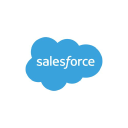How I Turned 20 Years Of Marketing Experience Into A $1M Business
Hello! Who are you and what business did you start?
Hi, my name is Alison Murdock and the founder and chief marketer of Trusted CMO. Trusted CMO is a boutique marketing consulting firm serving B2B venture-backed startups and growth-stage companies with foundational and fractional marketing services.
We’ve been in business for 4 years and have grown at least 50% yearly via word of mouth from investors, founders, and other marketing leaders.

What's your backstory and how did you come up with the idea?
I have been a CMO and marketing leader for over 20 years in Silicon Valley and Europe. I have never worked for a company larger than 500 people, and Trusted CMO is my fourth business. Much of my career has been working at startups – mainly launching the company and building a go-to-market team that could scale and drive revenues.
I quit my last...


















